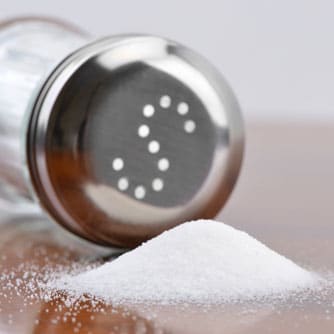Telomeres are the end caps of chromosomes, protecting the DNA complexes from deterioration during cell division. Telomere shortening is considered a marker of cellular aging, and prematurely shortened telomeres have been linked to increased risk of cancers, heart disease, dementia and death. Haidong Zhu, MD, from the Medical College of Georgia (Georgia, USA), studied 766 adolescents between the ages of 14 and 18 years, who were divided into two salt-intake groups based on self-reported 7-day, 24-hour food-frequency questionnaires. From these assessments it was determined that the low-intake teens consumed, on average, 2,388 mg/day of sodium, while high-intake teens consumed 4,142 mg/day of sodium. After adjusting for confounding factors, data analysis revealed that higher dietary sodium intake was associated with shorter leukocyte telomere length in the overweight and obese teens, but not in the teens whose weight was normal. In that the American Heart Association recommends consuming no more than 1,500 mg of sodium a day, the study authors conclude that: “high sodium intake and obesity may act synergistically to accelerate cellular aging.”
Salt Takes a Toll on Youth & Teen Health
Haidong Zhu, et al. “High Sodium Intake is Associated with Short Leukocyte Telomere Length in Overweight and Obese Adolescents” [Abstract MP64]. Presentation at American Heart Association's EPI/NPAM Scientific Sessions 2014, 20 March 2014.
RELATED ARTICLES




